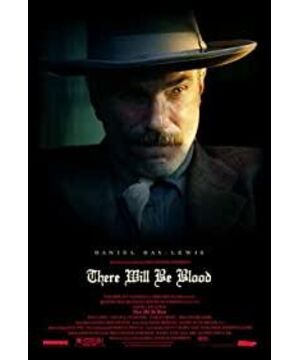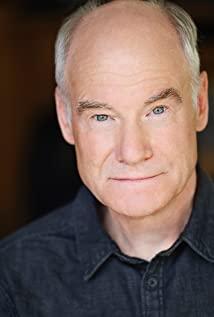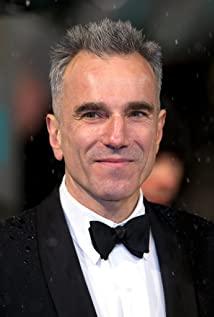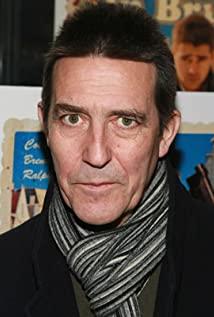I've only seen one of Paul Thomas Anderson's works before, Magnolia.
This time, Ya made a master movie that can be watched ten times in a row:
watching the story again, watching the actors again, watching the sub-shots again, watching the scene schedule again, watching the sound again, watching the soundtrack again, or using the classic passages as a pilgrimage The psychology of reading it alone ten times, remembering all the details like a doctrine; then you can read the story again, watch the actors again... and so on.
Then I discovered that the film, as a witchcraft ritual fantasy whole, can exist so real: so terrifying, terrifying, suffocating, and fascinating.
Sound, the part I am most interested in analyzing.
The first segment of the film, about 13 minutes, has no lines. Surprised that there is no language interference, the sound experience can be unparalleledly rich:
the creak of the mine support, the metal sound of the chisel rocking the rock, the rubbing of the rope, the bang of the fall, the moaning and wheezing, the oily bubbling sound , The low wind in the wilderness, the sudden burst of baby crying;
and the suffocating soundtrack of air raid alarms—then I discovered that this sound is actually a prelude to a magnificent musical—I thought of Xiao Stakovic, and a huge cemetery.
Thirteen minutes later, the rumbling of the train joined in, and the lower voice: the voice of Daniel Plainview.
A hoarse voice without any emotional color joins the previous rich sound system:
this is a sound system that can exist almost alone, without any annotations, using only the environment, music, and voice of the husky tone (just the tone). The sound system of the story.
The exquisiteness is amazing.
The scene scheduling and lens setting of the film are ceremonial.
Daniel raised the black hand that touched the oil and stretched it to the sky like a ritual; or painted the oil on the child’s forehead as if being baptized;
the oil well stent in the wilderness, like a penis, pierced into the sky, its inside facing the maternal earth Constantly grabbing-what a landscape rich in male metaphors; the
oil erupts violently, and it seems that the sky is smeared with eternal filth; Daniel is not frantic and excited, but ran away from the oolong blowout with the injured child, This is a long shot of running, with lingering spell-like music in the ears; the
blowout flame rises to the sky strangely and magnificently, the camera moves slowly across the plain with solemn speed and mysterious percussion. , The silent black shadows ran rhythmically beyond our vision one by one;
the firelight in the night formed a huge eye shape, and the burning bracket of the oil well was his devil’s pupil; Daniel's face reflected by the firelight floated in oil-like density On the dark curtain, there is no expression, just looking up.
There was also Eli’s absurd exorcism sermon. The camera followed Daniel through the gate and slowly moved forward and approached the priest who was like a crazy speech. He watched the exorcism process from a frightening distance, and then the priest shouted and became hysterical. The "arthritis" was expelled from the house. At this time, the camera was facing the priest, and as he approached, he gradually exited the door-it was the camera that was expelled, and it was our vision.
Compared with the numerous and even hypocritical flashbacks of "Survival in the Wild", "Blood Black Gold" has only one flashback that cherishes the ink as gold, and the flashback until the point is: After Daniel and HW break, flash back to the brief trivial details of life, a hat, The two teased each other a little bit, and finally Daniel walked to the oil well alone, while HW and Mary left the screen together...for a while, it was suffocating.
These are just a few passages that can be seen trembling all over. Very NB.
There are still many paragraphs worthy of praise, not one by one.
Then comes the story.
Daniel Plainview and Eli Sunday are a pair of paradoxes, and the story advances between the two.
Eli Sunday represents "society", religion, morality, human relations and all related rules;
Daniel Plainview represents "wilderness", is anti-social, questioning religion and morality, and wandering in human relations.
Their names are full of metaphors: the former is Sunday, which is "Worship" day; and the latter is "Plainview".
Eli presents weakness, falsification and hypocrisy, while Daniel is cold, powerful and true. He has seen through Eli's depravity of human nature, moral hypocrisy and the absurdity of the religion he maintains; he plays with acrimonious irony and mercilessly. Eli and the world he represented, he knocked the priest to the ground and smeared his face with mud-finally, on the bowling lane, killed him with a bowling ball.
Eli is weak, but he is complacent. His only advantage is that he can use the "wilderness" he owns to conquer wild beasts. He uses wild beasts to deal with beasts—everything is a deal, which is also in line with his ulterior nature; in that baptism ceremony Above, although Daniel murmured "oil pipeline...", a pot of holy blood poured down from his head, and the stubborn Daniel had already been teased.
Daniel was strong and indisputable most of the time, only HW Plainview and Mary Sunday neutralized this opposition:
he pulled Mary firmly on her shoulder and said that Eli was not allowed to hit her again; and after being baptized, he was cold water. , The young Mary gave him a silent hug like comfort-he also responded with a generous palm.
Daniel showed such subtle paternal love when dealing with HW. He even used alcohol to feed the babies in milk. He was so stubborn about the so-called "family business". Although HW was just an outcast, he still used strict methods to train him firmly. He is self-reliant; even if he receives only the slightest hint, he will roar in rage: Don't question my way of educating my son.
What a firm father he is.
When he broke with the adult HW relentlessly-this may be his way of education, he was so drunk that he couldn't sleep on the bowling lane.
Maybe he didn't long for warmth, but he did wander in the relationship.
Go back to "Plainview" again.
The "wilderness spirit" is actually the American spirit. In the history of American fortune, Daniel is the best testimony: He criticized the traditional hypocritical and moral trampling, and responded to the wilderness with cold and even cruel, but the most powerful spiritual force.
You will be shocked by his violent perversion, and at the same time conquered by his powerful pulse, the old world is dying under his bite.
This movie deals with all violence so calmly, the process is instant, the blood is jet black, the close-ups without wounds and the faces of the dead are different from the vigorous vigor of "Oriental Promise" and "Old Nowhere", but they are more like black. It's overwhelming like iron.
Few people can excavate the American spirit so calmly, without pretense, without pretense, and flattery, and endow it with proper witchcraft-style solemnity and a kind of evil beauty.
Compared with "Blood Black Gold", "Wilderness Survival" is just a sentimental youth drama: Christopher McCandless yearns for the wilderness, but died of ignorance of the wilderness; Daniel Plainview is completely wilderness, he can use the same as the wilderness The spirit speaks to the wilderness.
So far, I don't understand why the best film is "Old Nowhere".
Maybe the Coen brothers are too famous (Oscars are always in the air);
maybe "Blood Black Gold" is too dark, too cold, and too NB, beyond the value of the Oscars;
indeed, the Oscars will never award awards to them. Shostakovich's (which may be a more reliable statement).
Although the best actor award seems incomprehensible in terms of summarizing the meaning of the film, it is indeed well deserved. This year, the best actor is an award that is more important than the best film: a
tribute to the great actor Daniel who has the same name as the protagonist. .
View more about There Will Be Blood reviews











